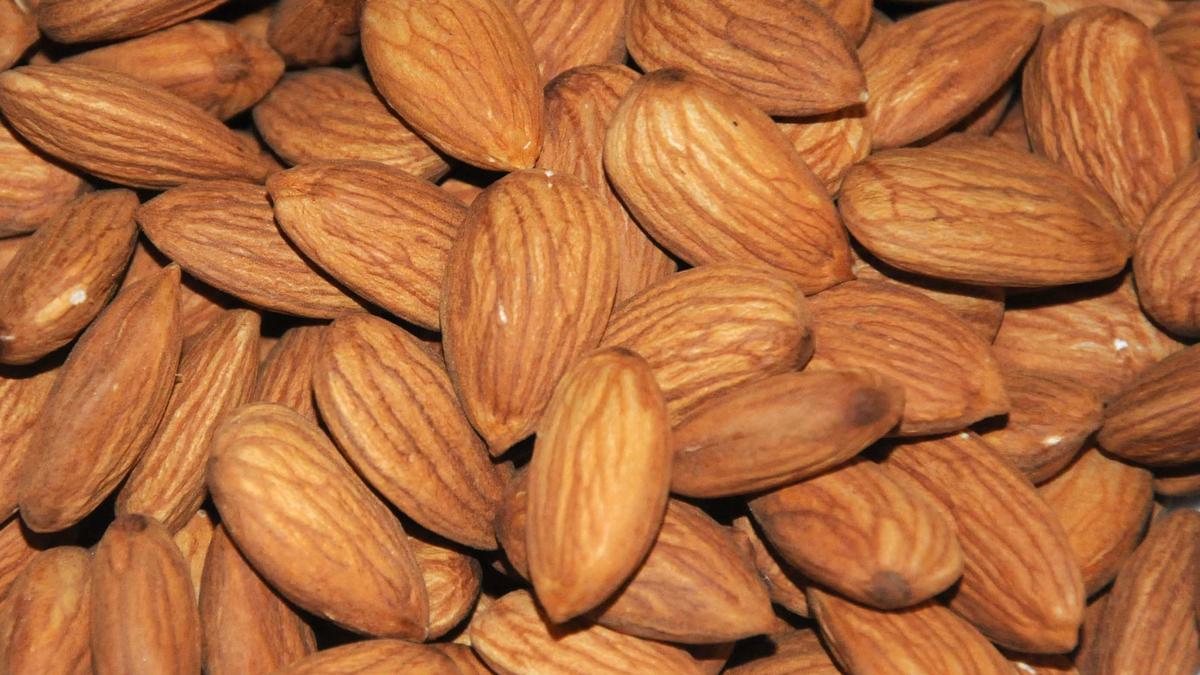Image for representation.
| Photo Credit: The Hindu
Recent meta-analyses of studies on the benefits of consuming almonds published in a peer-reviewed journal have shown that the tree nut does leave an ameliorative impact in a multitude of sectors. The results suggest that almond consumption results in small reductions in weight, LDL cholesterol and diastolic blood pressure, as well as improved glycaemic responses in Asian Indians.
These results were published recently in a paper Current Scientific Evidence and Research Strategies in the Role of Almonds in Cardiometabolic Health in the peer-reviewed journal Current Developments in Nutrtition Perspective. The analyses of multiple studies showed that almond consumption does not lead to weight gain, and may even contribute to reductions in body weight at doses of about 50 grams a day. The authors from the United States, Canada, France and India argued that almonds have an impact on lowering cholesterol in the body, though it depends on the dose (over 50g a day), and for how long it is eaten (10 weeks). Almond consumption results in a small but significant reduction in LDL cholesterol by approximately 5 g/dL (or about 5%) for the general population, including those at risk of chronic diseases.
Anoop Misra, senior diabetologist from the Fortis C-DOC Center for Diabetes, Obesity, Metabolic Diseases, and Endocrinology, New Delhi, explains that almonds contain several components that are believed to contribute to the cholesterol-lowering properties, “including β-sitosterol for which there is well-established evidence of lowering LDL cholesterol levels; monounsaturated fats (67%); polyunsaturated fats (11%); and dietary fiber (11%).” The analyses, which was funded by the Almond Board of California, also states that with a daily dose of almonds, Asian Indians with prediabetes can achieve a significant reduction in fasting blood glucose and HbA1C.
Dr. Misra, adds some context: “Previously, our group examined over three months, the effect of having 20g of almonds 30 minutes before each major meal on prediabetes. We found significant improvements in body weight, waist circumference, glycaemic control (particularly postprandial hyperglycemia), and insulin resistance. Notably, 23.3% of participants in the treatment group showed reversal from prediabetes to normal glucose regulation, comparable to results seen with Acarbose medication (25%).”
“My advice is to have almonds, half a fistful each in the morning and evening. For people with diabetes, they can have it as a snack in between meals or 30 minutes before meals (based on our study). In some people, to enhance efficacy, this may be increased after deleting some calories from other items (like 20g) two to three times daily,” he explains.
Published – April 16, 2025 10:32 pm IST
